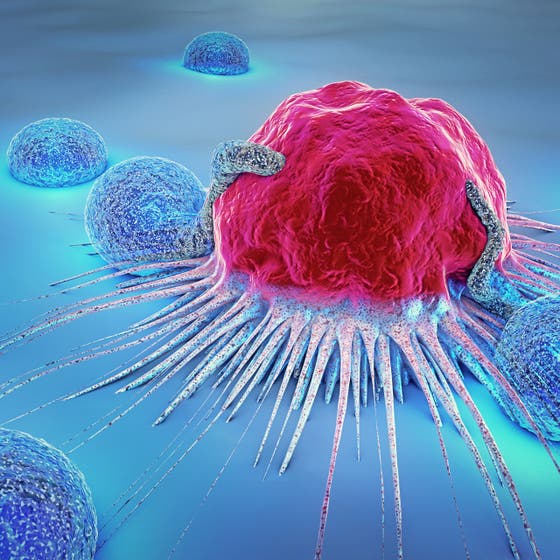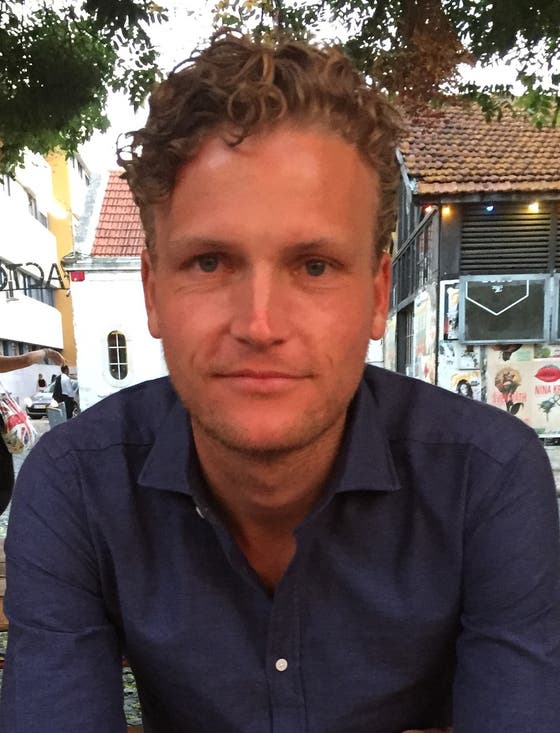Infection and Immunity nieuws
Jan 15: Four grants for research on tumor immunology at UMC Utrecht

Last December, four primary investigators from the Tumor Immunology section of the Laboratory for Translational Immunology (LTI) at the UMC Utrecht received substantial research grants from the Dutch Cancer Society (KWF).
Read moreJan 11: No increased risk of colon cancer in IBD patients with speudopolyps

Patients with inflammatory bowel disease (IBD), where pseudopolyps have been found during a screening of colon (colonoscopy), appear to have no increased risk of developing colon cancer, contrary to what was previously thought.
Read moreDec 20: Grant for development new immunotherapy against cancer

The Dutch Cancer Society (KWF) has awarded dr. Niels Bovenschen (UMC Utrecht) a grant that will enable him to investigate a new form of immunotherapy over the next two years. Immunotherapy against cancer aims to strengthen and activate the own immune system to attack and kill cancer cells.
Read moreDec 17: Connective tissue cells regulate joint damage in rheumatoid arthritis

Specific cells in the joints play a role in chronic inflammation and any joint damage that occurs in patients with rheumatoid arthritis. These effects must be taken into account when developing new drugs against chronic inflammatory diseases of the joints, says Pawel Kabala in his doctoral research.
Read moreDec 14: Nutrient fibers may be useful in the treatment of peanut allergy

Non-digestible nutrient fibers, such as those in many types of vegetables, may be helpful to people with food allergies. Research indicates that some nutrient fibers are capable of restoring a disrupted immune system. Therefore, such fibers could possibly contribute as an additive in the treatment of, for example, peanut allergy, says Simone puts Hayen in her PhD research.
Read moreNov 30: Chronic immune diseases accelerate aging

Chronic inflammation leads to faster aging of our cells. As a result, patients with chronic immune diseases are often confronted with age-related diseases such as cardiovascular disease and cancer at a younger age. This is shown by research by Nadia Vazirpanah, on which she will be awarded a PhD at UMC Utrecht on November 29. It is possible that a drug that decreases hepatic sugar production in patients with diabetes type 2 may slow down this process.
Read moreNov 16: Role of neutrophils further unraveled after a serious accident

After a trauma, various types of neutrophil granulocytes (a type of immune cells) are produced by the body. Some types of neutrophils have a strong bactericidal effect while other types may sustain infections.
Read moreNov 9: Cell wall research of streptococcus provides target for new vaccines and antibiotics

A characteristic sugar molecule in the cell wall of the Group A streptococcus bacterium may possibly serve as a target for candidate vaccines and new antibiotics. This is the conclusion of Samantha van der Beek on the basis of research on which she obtained her PhD in Utrecht on 8 November.
Read moreNov 6: 33.000 people die each year due to infections with antibiotic-resistant bacteria

A new study calculated that 33,000 people die each year in Europe as a result of infection with a bacterium that is resistant to antibiotics. This conclusion was drawn by an international group of investigators on the basis of research commissioned by the European Center for Disease Prevention and Control (ECDC).
Read moreNov 3: Mortality from Q fever adjusted upwards: 95 people died

During the Q fever outbreak from 2007-2010, an unprecedented number of people became infected with the Q fever bacterium Coxiella burnetii. Some of them developed chronic Q fever, in which vessel walls and heart valves become infected. About half of them develop complications, such as heart failure or a ruptured aorta. The prognosis for these patients is often unfavorable. Of all patients who die of chronic Q fever, 55 percent died within one year of diagnosis.
Read more